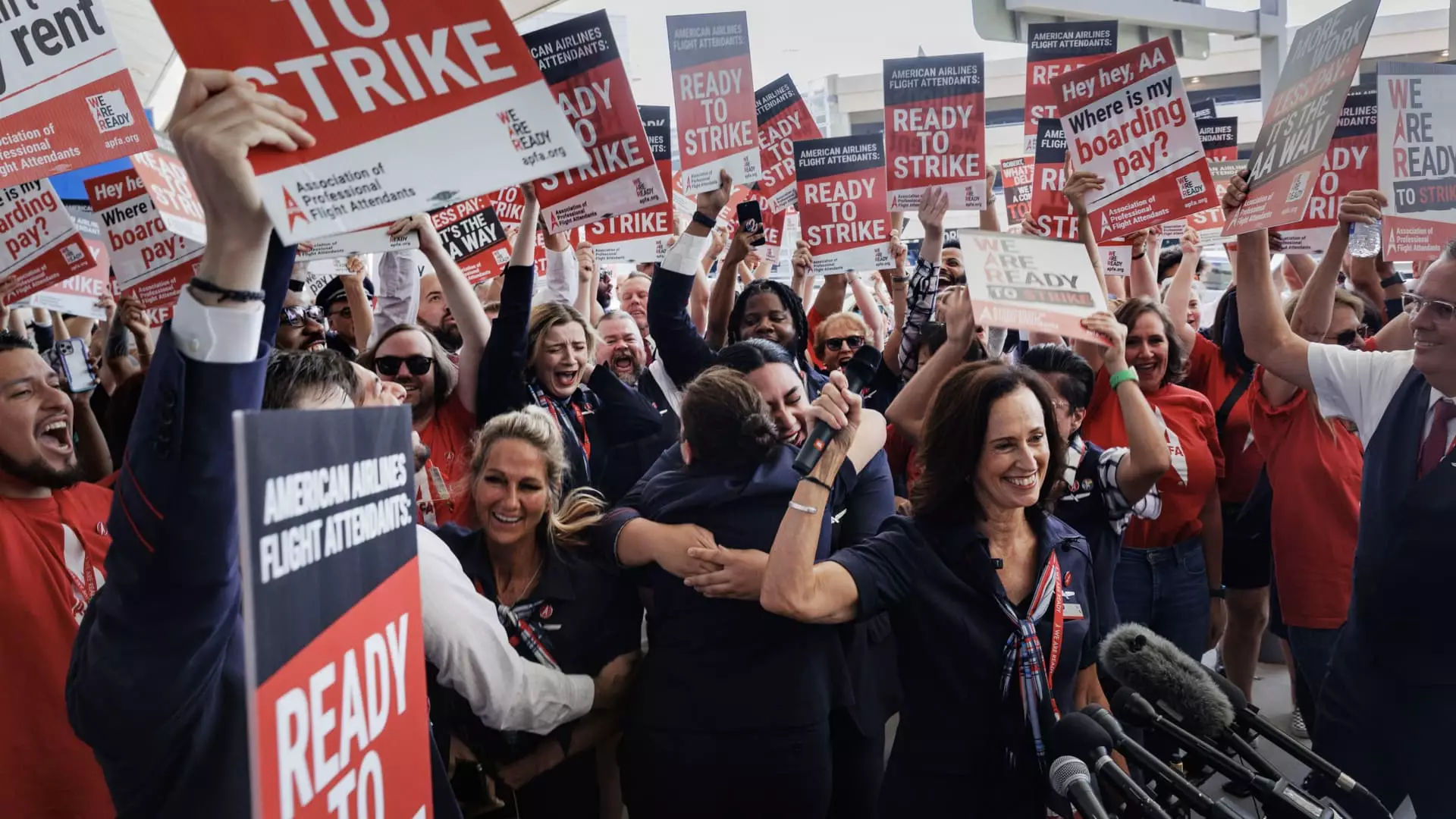After protracted and often tense negotiations, flight attendants at American Airlines have reached a significant agreement that promises to reshape the labor landscape within the airline industry. With a staggering 87% of voting members backing the new five-year contract, this milestone signals not only financial relief for the flight crews but also a broader shift in the power dynamics between labor and management in the wake of the COVID-19 pandemic.
At the forefront of this agreement is an immediate wage increase of up to 20.5%, effective as of October. This generous hike in pay is coupled with substantial retroactive compensation, acknowledging the prolonged period during which negotiations stalled. According to Julie Hedrick, president of the Association of Professional Flight Attendants, this contract not only rectifies wage disparities caused by inflation but also compensates flight attendants for their time spent in deliberation. Such restructuring is vital in an industry where the cost of living has vastly outpaced wage growth in recent years.
Before the contract was ratified, American Airlines faced a serious threat of strike actions from its flight attendants. These negotiations were so crucial that even Transportation Secretary Pete Buttigieg and Labor Secretary Julie Su participated in discussions led by the National Mediation Board in June. Their involvement underscores the significance of the airline industry’s labor relations, highlighting the potential economic repercussions of unresolved conflicts within such vital public sectors.
This agreement comes at a time when many airline workers are pursuing similar improvements in pay and working conditions. For instance, flight attendants from United Airlines continue to negotiate their contract terms, while recent discussions between Alaska Airlines and its cabin crew resulted in a rejected tentative agreement. Such variability exposes the challenges facing labor unions across airlines, as they strive to secure fair representation for their members.
Interestingly, other industries, such as the automotive and entertainment sectors, have recently experienced upheavals leading to resolution and improved contracts. The commitment to achieving just compensation is becoming increasingly prevalent, with some auto industry contracts finalized only after striking action.
The successful ratification of this contract represents a small victory for labor advocates in the airline industry and may set a precedent for other negotiations. With roughly 28,000 cabin crew members benefiting from this new agreement, it reinforces the need for unity and perseverance during difficult negotiations. As American Airlines CEO Robert Isom noted, reaching this agreement has been a top priority, signifying an essential step forward in improving labor relations.
Furthermore, as other unions like those at Boeing begin their voting processes for potentially lucrative agreements, the current climate in labor markets signals a renewed determination among workers. Collective bargaining efforts are gaining traction, ensuring that voices across various sectors are heard, and financial hardships addressed.
The American Airlines flight attendants’ new contract is not merely a financial boon but a herald of change that resonates across various industries, emphasizing the critical nature of labor negotiations in shaping fair workplaces.

